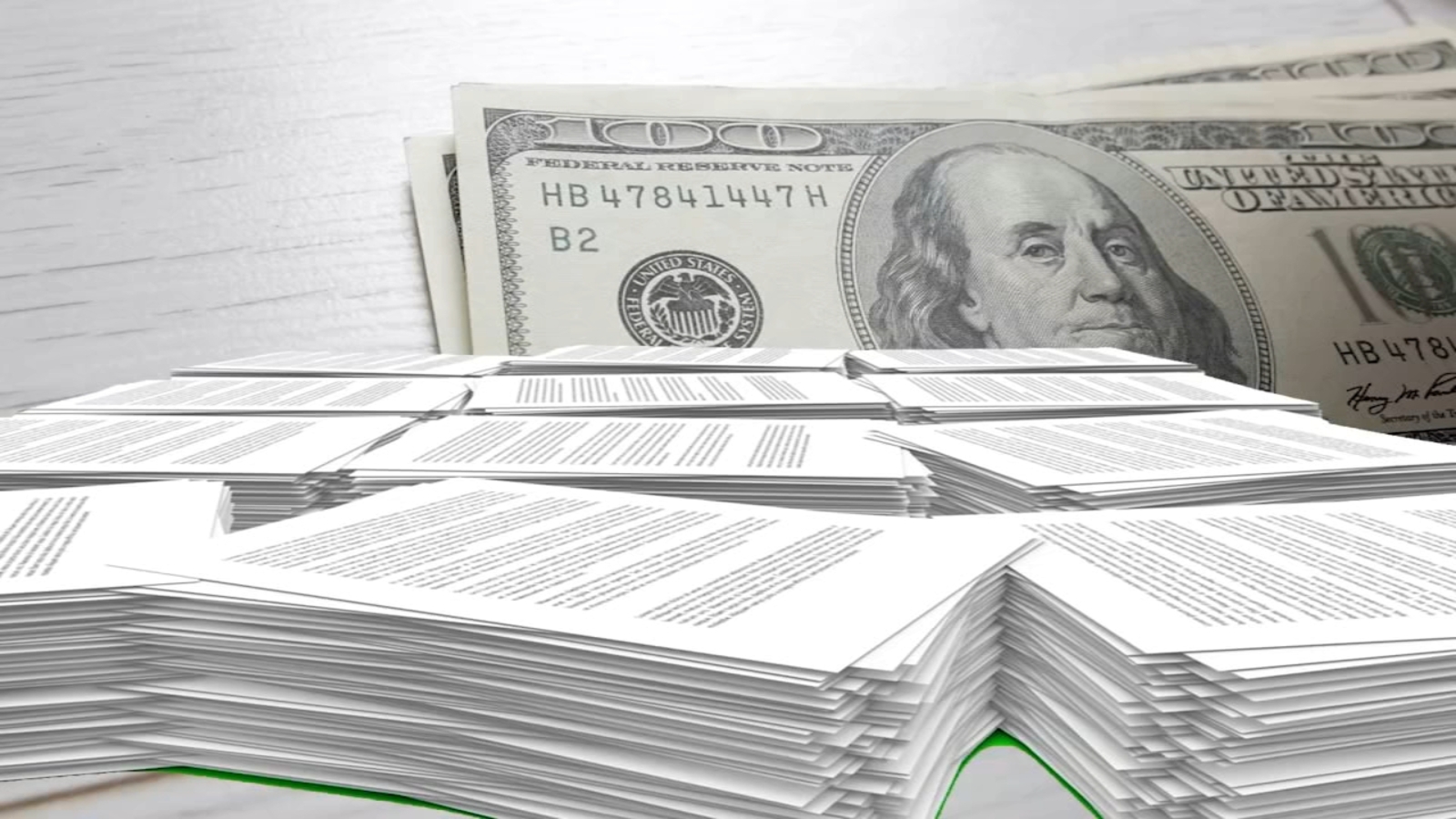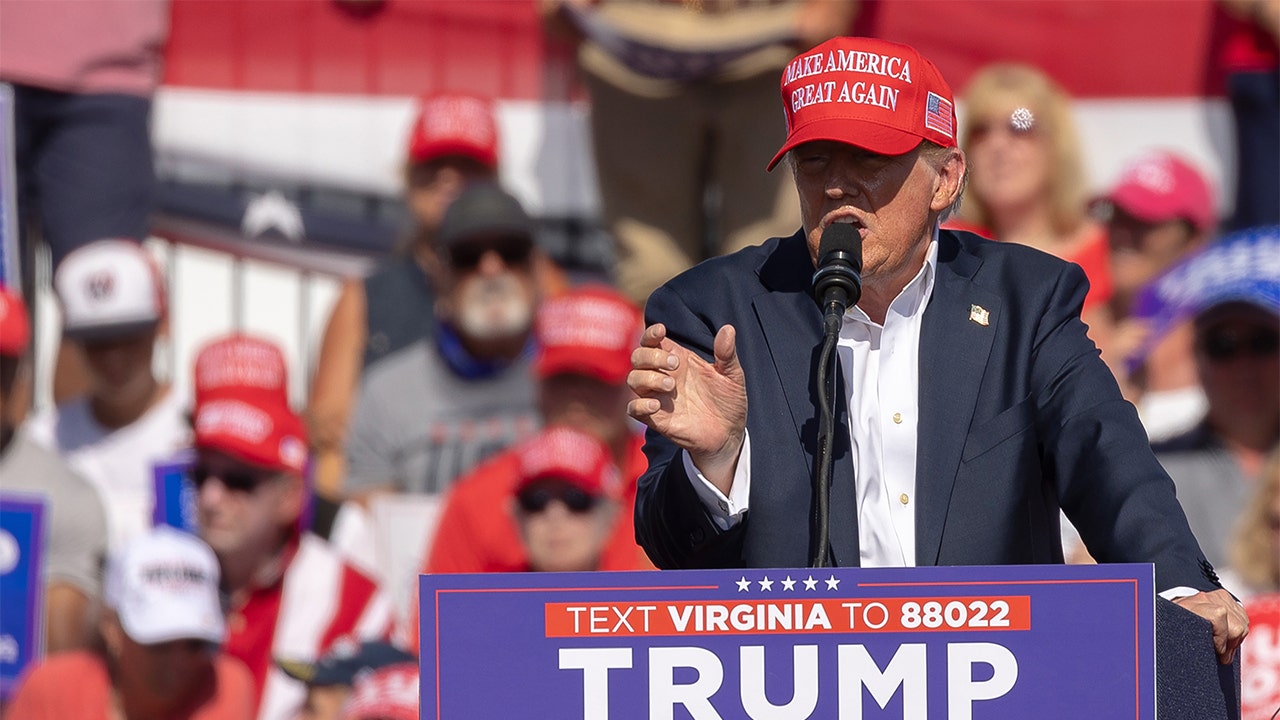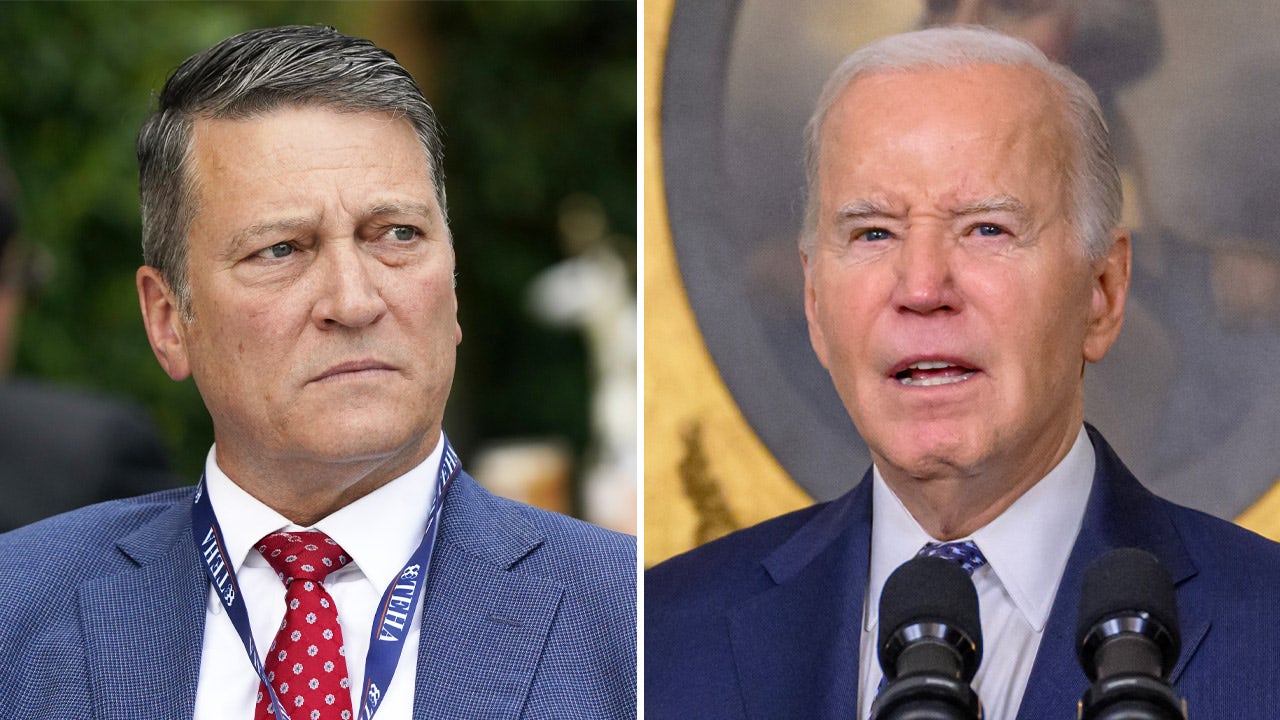San Francisco, CA
Are Muni customers paying their fares? Here’s a detailed look at SFMTA’s deep financial crisis

SAN FRANCISCO (KGO) — San Francisco’s transit system faces a crisis unless the state steps in to secure additional funding for Muni. But before releasing any money, the state has made it clear it wants to see an effort being made by Muni to prove it’s on the path toward being financially healthy.
So, ABC7 News wanted to confirm what we already suspected: Muni is losing millions because some people don’t pay the fare.
On a clear San Francisco Thursday morning, ABC7 News reporter Lyanne Melendez decided to ride on the oldest publicly operated transit system in America, Muni — paying, of course, using a Clipper card.
It’s reassuring to see that most Muni lines are back to near pre-pandemic levels.
VIDEO: Bay Area public transit agencies say they need more state money to survive
Also encouraging is this recent statement by the executive director of the San Francisco Municipal Transportation Agency who oversees Muni:
“Most people are still paying just as they did pre-COVID,” said Jeffrey Tumplin.
Paying, did he say? Because we had our doubts, we decided to record who paid and who didn’t.
The first two women who got on the bus after us did not pay.
Neither did another man who entered through the backdoor of the bus.
We recorded a couple walking right on without paying.
One man attempted to pay but for some reason, his Clipper card never worked.
An older woman paid with her Clipper card but the person behind her did not.
We counted five people getting on the bus and passing the driver without paying.
VIDEO: ‘Death spiral’: Here’s what is at stake for Bay Area public transit amid battle for state funding
That’s $12.50 that Muni did not collect from those five people.
We estimated that about three-fourths of the people who got on that bus never paid.
A Muni driver told us that a good day for her is when 40% of passengers pay.
“I’m honest, but if I was really pressed and didn’t have anything to pay with, I would do the same thing,” said Louis Gamache, a Muni rider who did pay.
Some were candid about their reason for not paying.
“I just think post-pandemic, it’s kinda like the norm as far as I’ve seen, especially when this goes up and down Market Street. I don’t know, people don’t pay, I don’t know,” said Alex, who only gave us his first name.
But SFMTA Director Tumlin clarified that there are other ways to pay that, perhaps, we didn’t catch on camera.
“What we’ve done is invent some new fare instruments. Right now you can download Muni Mobile and pay with your phone rather than pay with your Clipper card,” he said.
Melendez: “Have you ever heard of the Muni Mobile app?”
Muni rider: “Yeah.”
Melendez: “Do you use it?”
Muni rider: “No.”
VIDEO: SF Board of Supervisors unanimously approve resolution to urge state to save Bay Area public transit
We finally found a passenger using Muni mobile — an honest, law abiding tourist who had a one-day pass on his phone.
Melendez: “So, you paid using the mobile app?”
Muni rider: “Yes, right.”
We also found that there are people who feel that because other passengers don’t pay, “Why should I?”
“Absolutely, yeah, that’s the reason,” said that first couple who did not pay, Lorenzo and Misty Bartholomew.
That attitude shift is what in psychology is often referred to as “crowd behavior.”
“We still try to pay for our fare as much as we can. It’s just to a point to where, like, what’s the point you know,” Misty said.
Because Muni bus drivers have been assaulted in the past for trying to collect a fare, it’s understandable that they don’t engage with anyone who refuses to pay.
That’s the responsibility of the fare inspectors who are supposed to ask passengers to show proof of payment.
“We have transit fare inspectors that are out there everyday collecting good data about who’s paying and who’s not paying,” Tumlin said.
We asked Jennifer Horner, a regular Muni rider, when she last saw a fare inspector on Muni.
“I would say probably a year ago on a Muni train, not on a bus,” Horner responded.
VIDEO: 25% fewer Muni buses possible as SFMTA faces potential $214 million deficit
Here’s the problem with not paying.
Transit fares represent 18% of SFMTA’s revenue, or about $219 million.
That’s part of the reason why Muni had a $134 million deficit in 2022.
Too many numbers you say? Well, maybe you’ll be interested in knowing how Muni is seriously thinking about how to address this shortfall. This will likely affect you: Extend the hours of parking meters on weekdays to include nights and on Sundays. That’s 28,000 parking meters that could potentially be active on Sundays.
“So that would bring in an extra $18 million a year. It’s enough to save three Muni lines,” Tumlin said.
Other proposals include expanding neighborhood parking permits and taxes on off-street parking in downtown garages.
Another idea that circulated in the past was downtown congestion pricing – except that after the pandemic, downtown has been slow to recover.
We asked State Senator Scott Wiener, who is trying to secure funding in Sacramento for Muni and BART why not enforce fares instead of introducing so many proposals?
“We should enforce fares, but fare evasion is a small piece of the problem and even if we had 100% compliance, that would not solve the problem, so we need the state to help out,” he said.
The federal stimulus monies that have kept Muni afloat are expected to run out. SFMTA is hoping the state will provide some short-term relief funds.
If not, the transit agency may have to scale back Muni to pandemic-levels of service, when only 40% of routes were up and running.
“So many people are riding on Muni and BART right now, and we can’t have them fall apart,” Wiener said.
If you’re on the ABC7 News app, click here to watch live

San Francisco, CA
Harris glosses over debate at San Francisco fundraiser, highlights Biden victories over 'liar' Trump
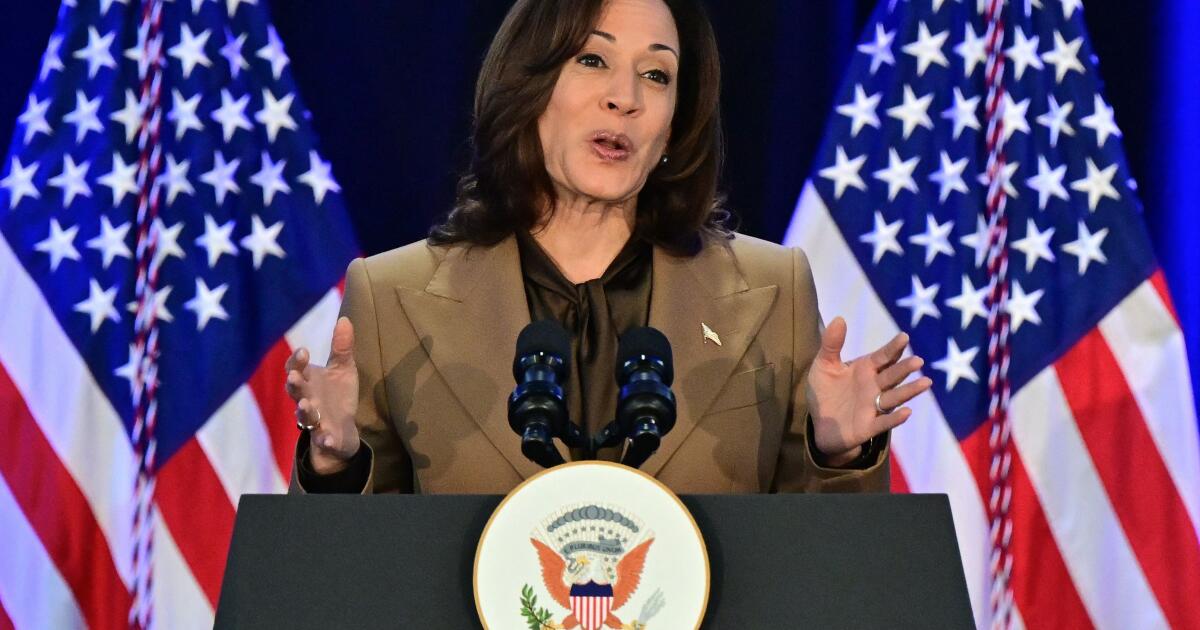
At a fraught moment in President Biden’s reelection campaign, as he faces calls to drop out of the race due to serious flubs at last week’s debate, Vice President Kamala Harris addressed donors at a private fundraiser Tuesday in San Francisco and focused on the election as a choice between civil liberties and dictatorship.
“Let’s just deal with the elephant in the room. There are actually two: One is the debate, and the other is Trump,” Harris said to light laughter from a group of about 35 supporters at the Nob Hill condo of real estate executive Susan Lowenberg, in a high-rise building overlooking the city and bay.
“The debate, as the president said, [was] not his finest hour. We all know that,” Harris told the room. But the outcome of the election, she added, “cannot be determined by one day in June.”
“It is still the fact that the stakes are so high in this election. It is still the fact that the race is close. It is still the fact that there is a profound contrast on the two sides of the split screen in terms of who stands for what and what each has accomplished,” she said. “And it’s still true that Trump is a liar.”
Her appearance at the San Francisco fundraiser came the same day Trump’s campaign reported raising $331 million compared with Biden’s $264 million during the second quarter of this year, eliminating the cash advantage Biden previously had over Trump.
“President Trump’s campaign fundraising operation is thriving day after day and month after month,” the Republican’s top campaign advisors, Chris LaCivita and Susie Wiles, said in a statement. “This fundraising momentum is likely to grow even more as we head into a world-class convention and see the Democrats continue their circular firing squad in the aftermath of Biden’s debate collapse.”
Harris didn’t say anything further about Biden’s debate performance while a Times reporter was present at Tuesday’s private fundraiser.
Elizabeth Ashford, a Democratic strategist who served as Harris’ chief of staff during her tenure as California’s attorney general, applauded Harris’ focus in recent days on delivering a crisp, clear message to an anxious American electorate. Harris’ job, Ashford said, is to focus on the administration’s accomplishments, and to demonstrate to voters — without actually saying it — that she can step in if necessary to effectively lead the nation.
“That is where I would be singularly focused,” Ashford said. “One of Kamala’s areas of growth has been to be really confident in how she communicates. And this is that moment.”
A new CNN poll indicates some 75% of voters think Democrats would have a better shot at keeping the White House if they swapped Biden out for someone new. The poll also showed nearly as much support for Harris as for Trump in a hypothetical matchup — with 47% of registered voters surveyed nationwide saying they would support Trump and 45% saying they would vote for Harris. The same poll indicated the difference between the current likely candidates was larger, with 49% backing Trump and 43% favoring Biden.
At the fundraiser Tuesday, Harris seemed comfortable and relaxed in a room full of longtime donors and friends stretching back to her start in San Francisco politics as district attorney 20 years ago.
Harris touted the administration’s policy accomplishments, such as capping the price of insulin for seniors on Medicare and erasing student loan debt for millions of borrowers. She highlighted the White House’s commitment to mitigating climate change through investments in green energy, and its support for reproductive freedoms and other rights for women and marginalized communities.
“There is an awareness among the American people that there is a full-on attack — an intentional attack — against hard-fought, hard-won freedoms and liberties,” she said.
Those stakes became “even higher” with the U.S. Supreme Court’s decision on Monday that gave Trump — and possibly future presidents — legal immunity from criminal charges stemming from official actions while in office, Harris said.
“And let’s not forget, Donald Trump has openly said he admires dictators and intends to be ‘a dictator on Day One,’” Harris said. “We gotta fight, and we know how to fight.”
San Francisco, CA
How can you find out if your favorite bar in San Francisco is crowded?

Almost everyone has likely experienced the disappointment of walking into their favorite bar only to find it too crowded, or empty, for their liking. But what if you could find out what you’re in for before you leave the house? That’s the premise behind an app launched in San Francisco earlier this year.
2nite, the self-proclaimed “all-in-one app for managing, promoting and discovering nightlife,” has partnered with a number of local bars to provide livestreams of the insides of their venues. You can also purchase tickets for events at these venues through the app.
The participating bars control the cameras within their establishments, and the app has introduced livestream blurring to ensure patrons’ anonymity. Not all San Franciscans are thrilled by the prospect, though, with many raising concerns about privacy. “You should be able to let loose in a bar where Big Brother isn’t watching you,” one resident told the Standard.
San Francisco, CA
‘The power of fiction’: San Francisco store sends LGBTQ+ books to states that ban them
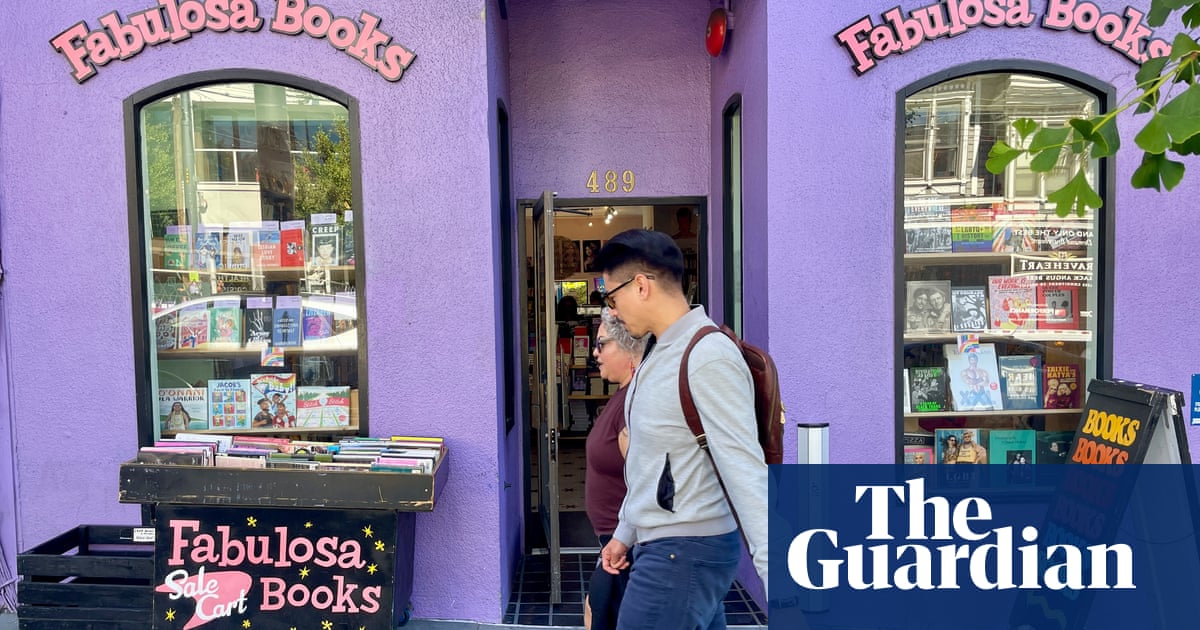
A San Francisco bookstore is fighting back against escalating anti-LGBTQ+ book bans across the US by sending prohibited queer texts to communities battling censorship.
Fabulosa Books, located in the Castro, the city’s historic gay neighborhood, has received widespread support during Pride month for its Books Not Bans program, which allows customers to buy and send books to LGBTQ+ organizations operating in conservative parts of the country.
Becka Robbins, founder and director of the program, and the bookstore’s events manager, launched the initiative last year, inspired by repeatedly witnessing how impactful it can be when youth discover queer literature for the first time: “At the store, I’ve seen young people who don’t have access to these books, and it’s definitely a cinematic moment, where they are like: ‘Oh my god!’ … This should be ordinary. They should see this queer lit in their own libraries, in their classrooms, on their parents’ bookshelves. But they’re not.”
She decided the most practical way to push back against bans, which have become a priority of anti-LGBTQ+ school boards across the country, was to send books directly to groups that could provide them to readers who might not be able to access the texts in their schools or through their families.
The project is a grassroots effort that operates out of a closet in Fabulosa, and since launching, Robbins said she has sent more than 700 books to states across the US, including Texas, Florida, Alabama, Arkansas and Oklahoma.
“I really believe in the power of fiction as a driving force for connection, resilience and empathy. It gives you the capacity, in a way that nothing else does, to connect with people who are different than you,” Robbins said. “There’s been times in my life where fiction has really kept me going.”
She has more boxes ready to ship, and since the program got recent news coverage in the Los Angeles Times, the Associated Press and local television stations, donations have been pouring in, with more people stopping by the store wanting to buy books for other communities: “It’s been a community effort. Customers come in and pay for entire boxes and say: ‘Send this to Florida.’ They leave a note that says: ‘Hang in there, you’re going to get out of that place.’ It’s encouraging and also a little heartbreaking. People shouldn’t have to leave to find safety and comfort.”
The American Library Association (ALA) reported in March that more books were banned in 2023 in US schools and libraries than any other year on record – 4,240 titles censored, which was more than the previous two years combined. Many targeted books are about race and LGBTQ+ people.
Last week, South Carolina adopted one of the harshest book ban laws in the country, with a vague policy requiring books to be “age or developmentally appropriate”, an edict that could impact a broad range of texts. Public school textbooks have also increasingly been targeted, with literature on the climate crisis, vaccines, history, racism and sex education facing censorship.
Fabulosa owner Alvin Orloff said some of the local patrons supporting Books Not Bans come from the communities that are now facing rising censorship: “Our customers live in San Francisco, but they know what it’s like to grow up in a small town where everybody’s bigoted. So they feel really strongly that they want to do anything they can to make life easier for the next generation.”
The program is also designed to show solidarity with transgender and queer groups that are sometimes faced with significant backlash and violent threats over their efforts to defend people’s rights, Orloff added: “There’s a psychological thing for them to just know there’s people out there who are thinking about them and care about them, that they’re not invisible, that there’s a world beyond their community that values them.”
Watching the escalating book bans has reminded Orloff of the 1970s campaigns of anti-gay activist Anita Bryant, who claimed her efforts were about “saving the children” and promoting parents’ rights: “Politicians just want to whip up the fear. It’s a big, symbolic thing for them to say we’re ‘protecting the children’. It’s the same thing they were saying 50 years ago when I was growing up.”
“Books offer a wider variety of role models and a greater understanding of queer communities than you’re going to see in the movies,” Orloff added. “It just makes you feel so much better to know that there are people like you out there and that you don’t have to have a life constricted by people who don’t value you.”
-

 News1 week ago
News1 week agoA Florida family is suing NASA after a piece of space debris crashed through their home
-

 Politics1 week ago
Politics1 week agoBiden official says past social media posts don’t reflect ‘current views,’ vows to support admin ‘agenda’
-

 World1 week ago
World1 week agoNew Caledonia independence activists sent to France for detention
-

 World1 week ago
World1 week agoIsrael accepts bilateral meeting with EU, but with conditions
-

 World1 week ago
World1 week agoNetanyahu says war will continue even if ceasefire deal agreed with Hamas
-

 News1 week ago
News1 week agoArkansas police confirm 4th victim died in grocery store shooting
-
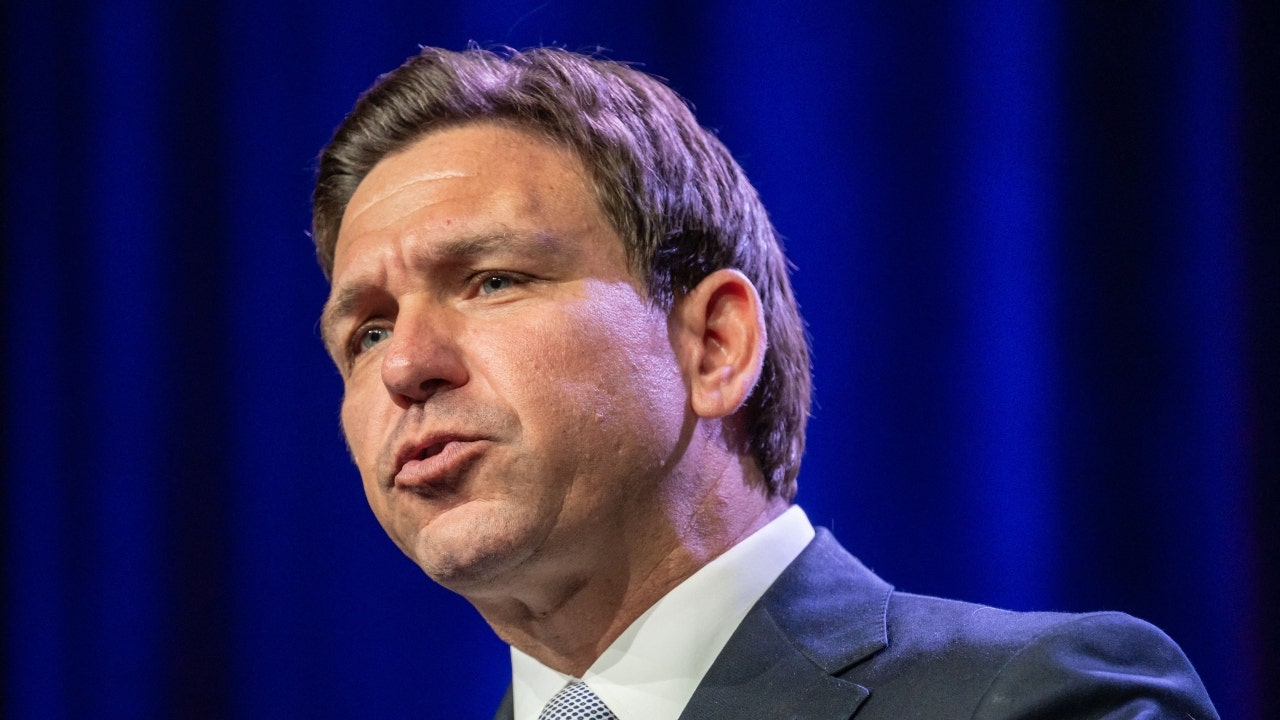
 Politics1 week ago
Politics1 week agoDeSantis signs bill allowing residents to kill bears, vetoes bill that fines slow left lane drivers
-

 News1 week ago
News1 week agoWoman accused of trying to drown Muslim child in Texas in possible hate crime





